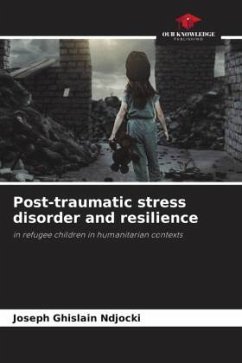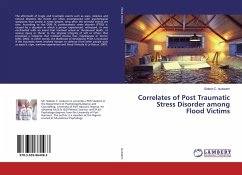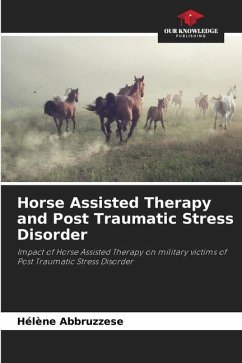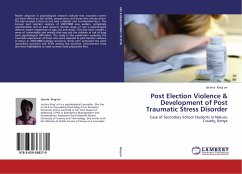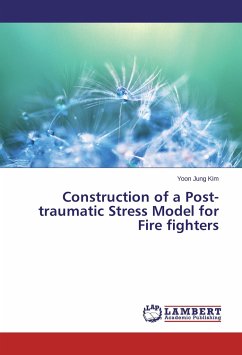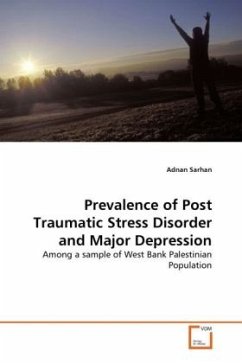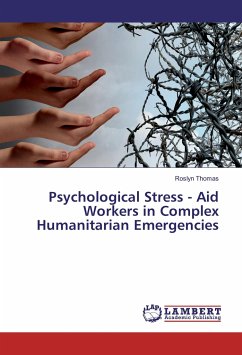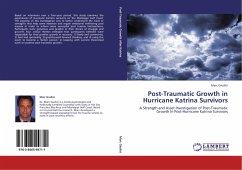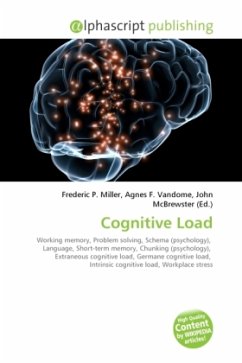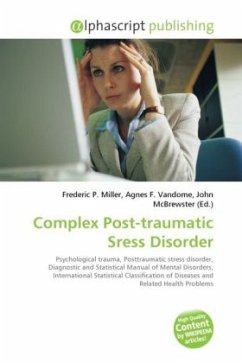
Complex Post-traumatic Sress Disorder
Versandkostenfrei!
Versandfertig in 6-10 Tagen
49,99 €
inkl. MwSt.

PAYBACK Punkte
25 °P sammeln!
High Quality Content by WIKIPEDIA articles! Complex post-traumatic stress disorder (C-PTSD) is a psychological injury that results from protracted exposure to prolonged social and/or interpersonal trauma with lack or loss of control, disempowerment, and in the context of either captivity or entrapment, i.e. the lack of a viable escape route for the victim. C-PTSD is distinct from, but similar to, posttraumatic stress disorder (PTSD). Though mainstream journals have published papers on C-PTSD, the category is not formally recognized in diagnostic systems such as DSM or ICD.[1] C-PTSD involves c...
High Quality Content by WIKIPEDIA articles! Complex post-traumatic stress disorder (C-PTSD) is a psychological injury that results from protracted exposure to prolonged social and/or interpersonal trauma with lack or loss of control, disempowerment, and in the context of either captivity or entrapment, i.e. the lack of a viable escape route for the victim. C-PTSD is distinct from, but similar to, posttraumatic stress disorder (PTSD). Though mainstream journals have published papers on C-PTSD, the category is not formally recognized in diagnostic systems such as DSM or ICD.[1] C-PTSD involves complex and reciprocal interactions between multiple biopsychosocial systems. It was first referred to by Judith Herman in her book Trauma & Recovery and an accompanying article. Trauma sources include sexual abuse (especially child sexual abuse), physical abuse, emotional abuse, domestic violence, torture and violations of personal boundaries such as serial intimate betrayals that are discovered and denied known as gaslighting.



